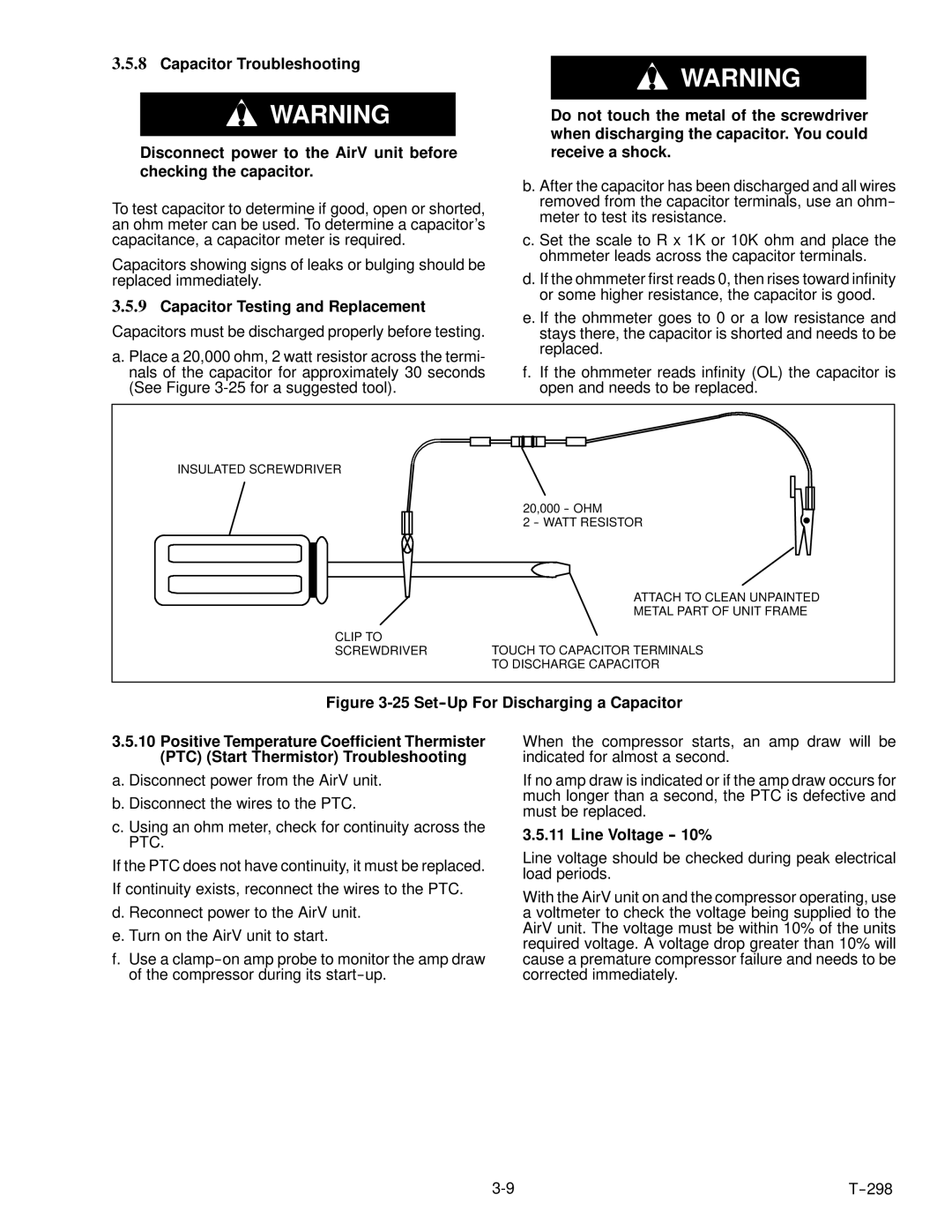
3.5.8Capacitor Troubleshooting
![]() WARNING
WARNING
Disconnect power to the AirV unit before checking the capacitor.
To test capacitor to determine if good, open or shorted, an ohm meter can be used. To determine a capacitor’s capacitance, a capacitor meter is required.
Capacitors showing signs of leaks or bulging should be replaced immediately.
3.5.9Capacitor Testing and Replacement Capacitors must be discharged properly before testing.
a. Place a 20,000 ohm, 2 watt resistor across the termi- nals of the capacitor for approximately 30 seconds (See Figure
![]() WARNING
WARNING
Do not touch the metal of the screwdriver when discharging the capacitor. You could receive a shock.
b. After the capacitor has been discharged and all wires removed from the capacitor terminals, use an
c. Set the scale to R x 1K or 10K ohm and place the ohmmeter leads across the capacitor terminals.
d.If the ohmmeter first reads 0, then rises toward infinity or some higher resistance, the capacitor is good.
e.If the ohmmeter goes to 0 or a low resistance and stays there, the capacitor is shorted and needs to be replaced.
f.If the ohmmeter reads infinity (OL) the capacitor is open and needs to be replaced.
INSULATED SCREWDRIVER |
|
| 20,000 |
| 2 |
| ATTACH TO CLEAN UNPAINTED |
| METAL PART OF UNIT FRAME |
CLIP TO | TOUCH TO CAPACITOR TERMINALS |
SCREWDRIVER | |
| TO DISCHARGE CAPACITOR |
Figure 3-25 Set--Up For Discharging a Capacitor
3.5.10Positive Temperature Coefficient Thermister (PTC) (Start Thermistor) Troubleshooting
a. Disconnect power from the AirV unit. b. Disconnect the wires to the PTC.
c. Using an ohm meter, check for continuity across the PTC.
If the PTC does not have continuity, it must be replaced. If continuity exists, reconnect the wires to the PTC. d. Reconnect power to the AirV unit.
e. Turn on the AirV unit to start.
f.Use a
When the compressor starts, an amp draw will be indicated for almost a second.
If no amp draw is indicated or if the amp draw occurs for much longer than a second, the PTC is defective and must be replaced.
3.5.11 Line Voltage -- 10%
Line voltage should be checked during peak electrical load periods.
With the AirV unit on and the compressor operating, use a voltmeter to check the voltage being supplied to the AirV unit. The voltage must be within 10% of the units required voltage. A voltage drop greater than 10% will cause a premature compressor failure and needs to be corrected immediately.
